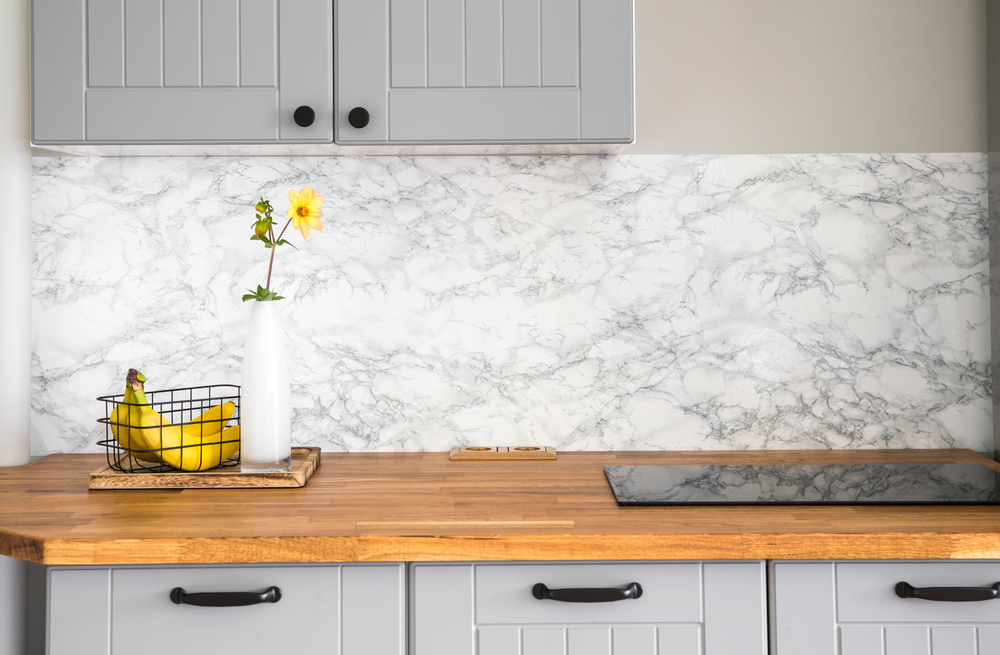When it comes to kitchen countertops, there are many different materials available. Among these are Meganite and Corian, two of the most popular choices for homeowners. Both options offer durability, visual appeal and a range of colors and patterns. But which material is best suited for your kitchen? In this article, we’ll compare Meganite and Corian countertops and provide tips on how you can prevent your sink from being scratched.
Shopping for a new kitchen countertop, many homeowners often find themselves comparing two of the most popular materials: Meganite and Corian. Both materials are highly resistant to heat, staining and bacteria, making them ideal for kitchens.
Contents
Meganite vs Corian
Meganite is an acrylic material that is one hundred percent non-porous. This means no liquid or food particles can penetrate the surface, making it easy to clean and maintain. It also comes in many colors and designs so matching your existing decor is simple.
Corian is constructed from a blend of polymers and minerals which makes it both durable and attractive looking. It’s available in several matte finishes so you can choose which look best suits your style. Additionally, this material won’t fade or discolor over time due to sunlight or other factors like heat exposure.
What is Corian Countertops?
Corian is a solid surfacing material used for countertops, shower walls, and bathroom vanities. It has been around since the late 1960s and continues to be a popular choice today. Corian is made of an acrylic polymer and alumina trihydrate, making it durable and long-lasting yet surprisingly lightweight.
The surface of Corian can be easily renewed with just soap and water or a nonabrasive cleaner. Plus, it’s available in more than 100 colors to coordinate with any décor. Corian is also incredibly versatile – it can be cut into shapes like circles or even molded into curves for sinks or other design elements. And because its nonporous, Corian resists the growth of mold and mildew so you don’t have to worry about germs lurking underneath the surface.
How Corian Made?
Corian is a material made from acrylic resin, which is a polymer. It has several advantages over other materials, such as being durable and heat-resistant. The process of making Corian begins with the acrylic resin, which is formed into sheets and then cut to the desired thickness. Manufacturers then add different colors and textures to create the desired look of the final product.
The first use of Corian was in 1966 when it was used in kitchen counter tops and bathroom vanity tops. Since its introduction, it has become increasingly popular due to its versatility and ease of maintenance. Today, Corian can be seen in commercial buildings, residential homes, hospitals and retail stores due to its durability and aesthetic appeal. Corian’s popularity continues to grow as more people learn about its benefits over traditional materials like ceramic tile or granite.
What is Meganite?
Meganite is an innovative type of magnet that is different from what most people are used to. It’s made from neodymium, iron, and boron – elements that can be combined in various ways to create a stronger magnet than traditional magnets. This makes it ideal for a variety of applications, such as medical tools and other instruments that need powerful magnets.
What sets Meganite apart from regular magnets is its ability to hold a greater amount of magnetic field energy. This means it can maintain its properties even when exposed to high temperatures or strong external forces.
Meganite has a higher resistance to corrosion than traditional magnets, making it suitable for long-term use without needing frequent maintenance or replacement. All these qualities make Meganite an attractive option for professionals who need reliable and durable tools and equipment.
How Meganite made?
Meganite is a solid surface material designed to have a smooth, glass-like finish. It is manufactured from raw materials that are different from those used in the production of Corian and other solid surface materials. The manufacturing process for Meganite takes place in several stages beginning with the melting of raw materials into liquid form.
This liquid resin is then poured into an open mould where it takes its shape and begins to harden. During this stage, special additives are added to ensure the final product has a polished smooth finish resembling glass. In addition, colour pigments can be added as required by customers during this stage as well.
Once the casting has been removed from the mould and left to cool down, it undergoes several automated polishing processes which further enhance its glossy appearance before being cut into desired shapes and sizes ready for delivery.
Final Take
When considering kitchen countertops, it is important to understand the benefits and drawbacks of Meganite and Corian materials. Both are quality products, however each provides its own unique characteristics that could make them a better fit for a particular project. For those looking for an affordable countertop with strong performance attributes, Meganite could be the right choice. For those who want a product with greater longevity and design options, Corian may be the best bet.


Thanks for your informative comparison.